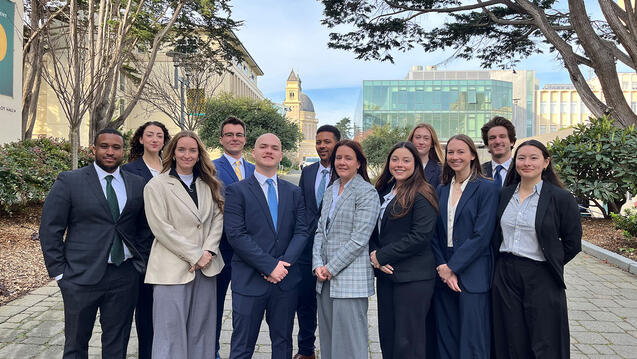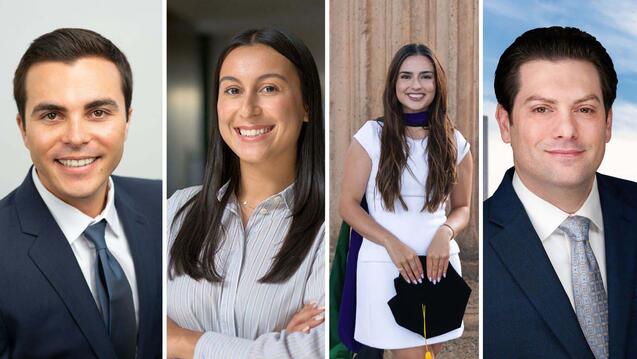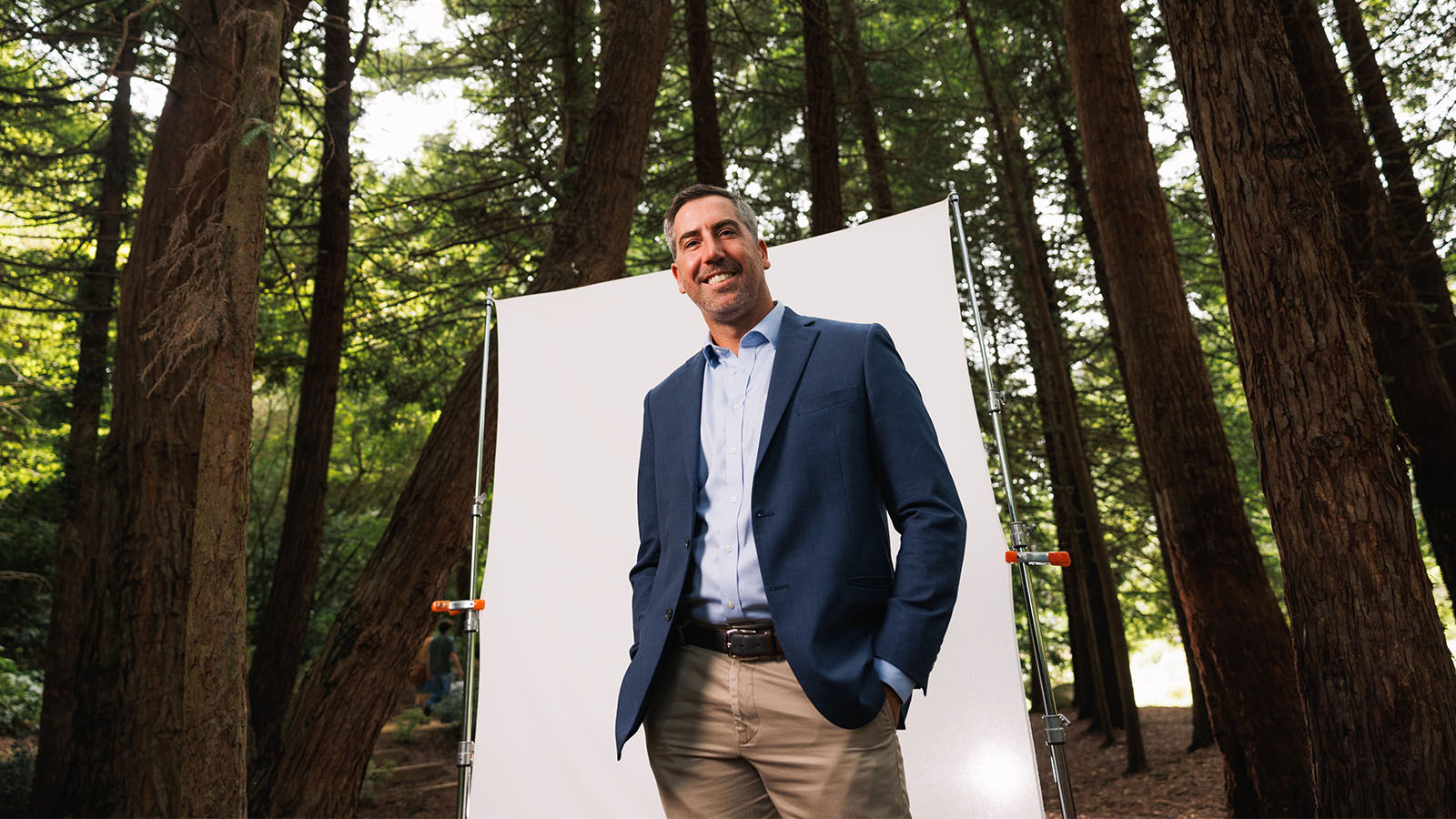
Let There Be Light
Rick Umoff, Luisa Elkins, Lilly McKenna, and Leuwam Tesfai have a lot in common. They’re all graduates of USF School of Law. They all live in the Bay Area. They all work to make clean energy available and affordable. They just do it in different ways.
The Advocate

Rick Umoff ’12 goes to bat for clean energy. As senior director and counsel at the Solar Energy Industries Association, he works to make policies that enable the solar industry to grow.
“Say you’re a company that puts solar on people’s rooftops. You’re SunPower or Sunrun. My job is to make sure that your customers are fairly compensated for the energy that their solar panels contribute to the power grid,” Umoff says. “If you’re a customer and you get a fair rate for solar power, then you’re more likely to install solar panels on your roof.”
In addition to promoting solar-friendly policies, he defends the solar industry against challenges from gas companies, coal companies, utility companies—“from anyone who has a stake in the status quo,” he says. He fights at the federal level and at the state level, in the legislature and in the courts.
During the Obama administration, Umoff represented the solar industry before the EPA and led the solar industry’s effort to decarbonize the country’s electric sector under the Clean Air Act. In Sacramento he worked to help pass SB 100, California’s law to eliminate emissions from the electric grid and to power the state with 100 percent clean energy by 2045.
His job entails teamwork. “I write legislation. I direct lobbyists. I spend a lot of time with the California Public Utilities Commission and at the California Energy Commission—litigation, policy work. I work with ratepayer advocacy groups and environmental groups. I work with wind companies, battery-storage companies, electric-vehicle companies to think about how together we can advance policies that support clean energy and clean air. I work with community choice aggregators, the local power providers trying to make electricity cleaner, more affordable, more equitable.”
All told, says Umoff, “I do this work to protect the natural world but also to advocate for people who don’t have a place at the table. Climate change has a major equity component to it, on a global scale. While I work in the private sector, I also work for the public interest.”
As this issue of the magazine went to print, Rick Umoff transitioned to a new role within the renewable energy sector.
The Counselor
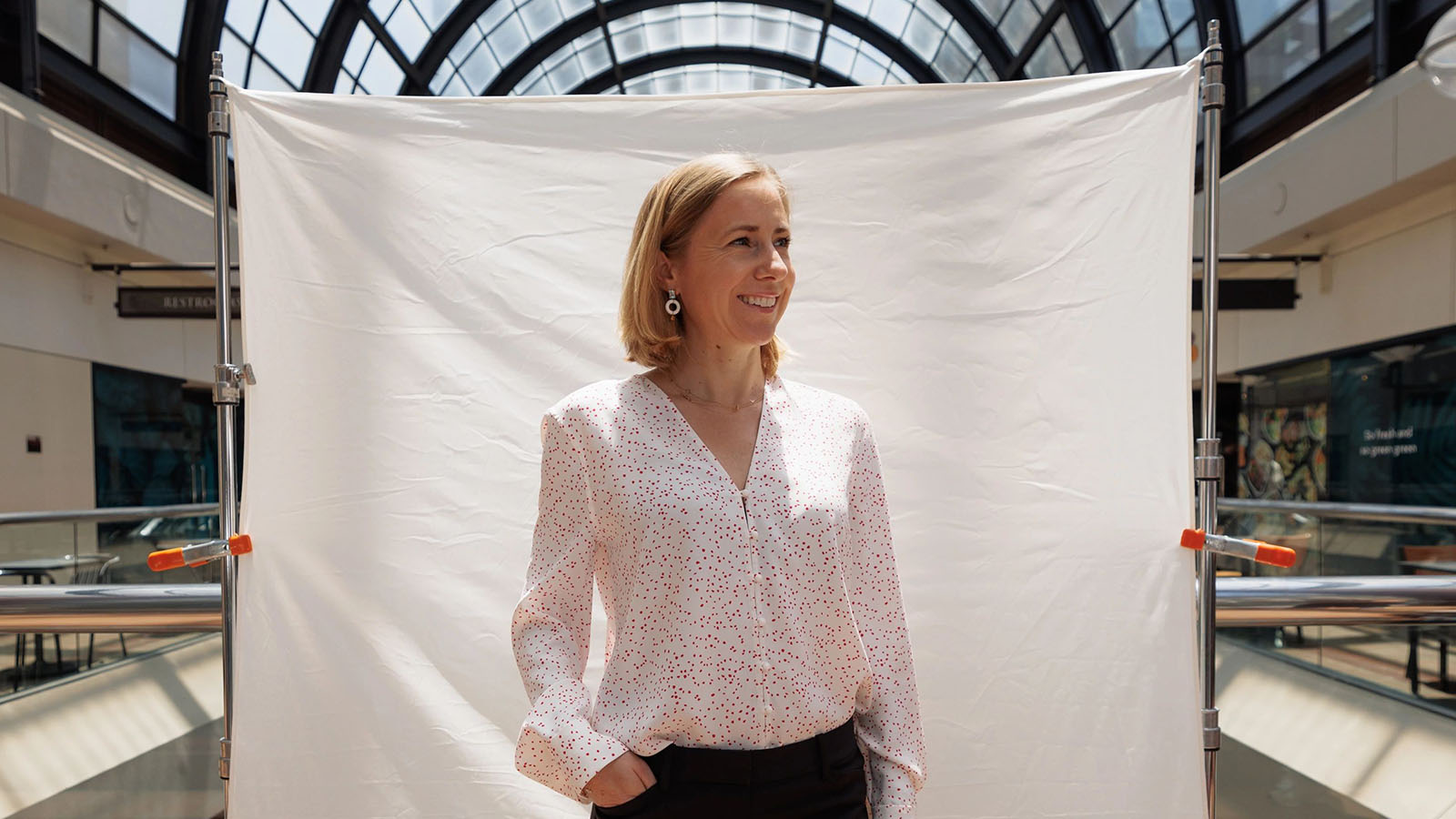
Lilly McKenna ’14 keeps her clients in business. In her role as of-counsel attorney in the energy development group of Stoel Rives LLP in San Francisco, she helps clients comply with state energy regulations and advocate for policy improvements.
“We represent renewable energy developers, clean transportation providers, power-delivery companies, and large power consumers,” she says. “Most of my work advising clients is before the California Public Utilities Commission, which regulates how power is procured and sold within the state of California.”
McKenna serves four stakeholders: her clients, her clients’ customers, the government, and Mother Earth. Recently, she secured an energy rate that will enable one of her clients to build electric vehicle (EV) charging stations. “This rate will mitigate some of the significant costs that EV charging companies face as they install new infrastructure,” she says.
Because her client’s EV charging stations will make charging more accessible, drivers will have an increased incentive to buy electric vehicles, McKenna says. If those drivers can plug in at affordable prices, even better.
“We negotiated an energy rate that EV charging stations pay to the power company. This rate is affordable for customers but also feasible for the charging stations, so it’s sustainable.”
McKenna adds that public charging stations make clean energy equitable, because they serve EV drivers who may not have the space or the funds to install charging stations in their homes.
“I do this work for two reasons,” she says. “One, this work is critical to our daily lives, even though we don’t think about it. When we flip the light switch, we want the lights to actually turn on. Second, I think it moves us toward a better place in the world. We want to make sure the power that turns on that light is doing good for our community — that it’s sustainable, that it’s affordable, and that it’s reliable. The icing on the cake is that this energy community is small and collegial, and I really enjoy the people I get to work with day in and day out, even when we’re across the table.”
The Guide
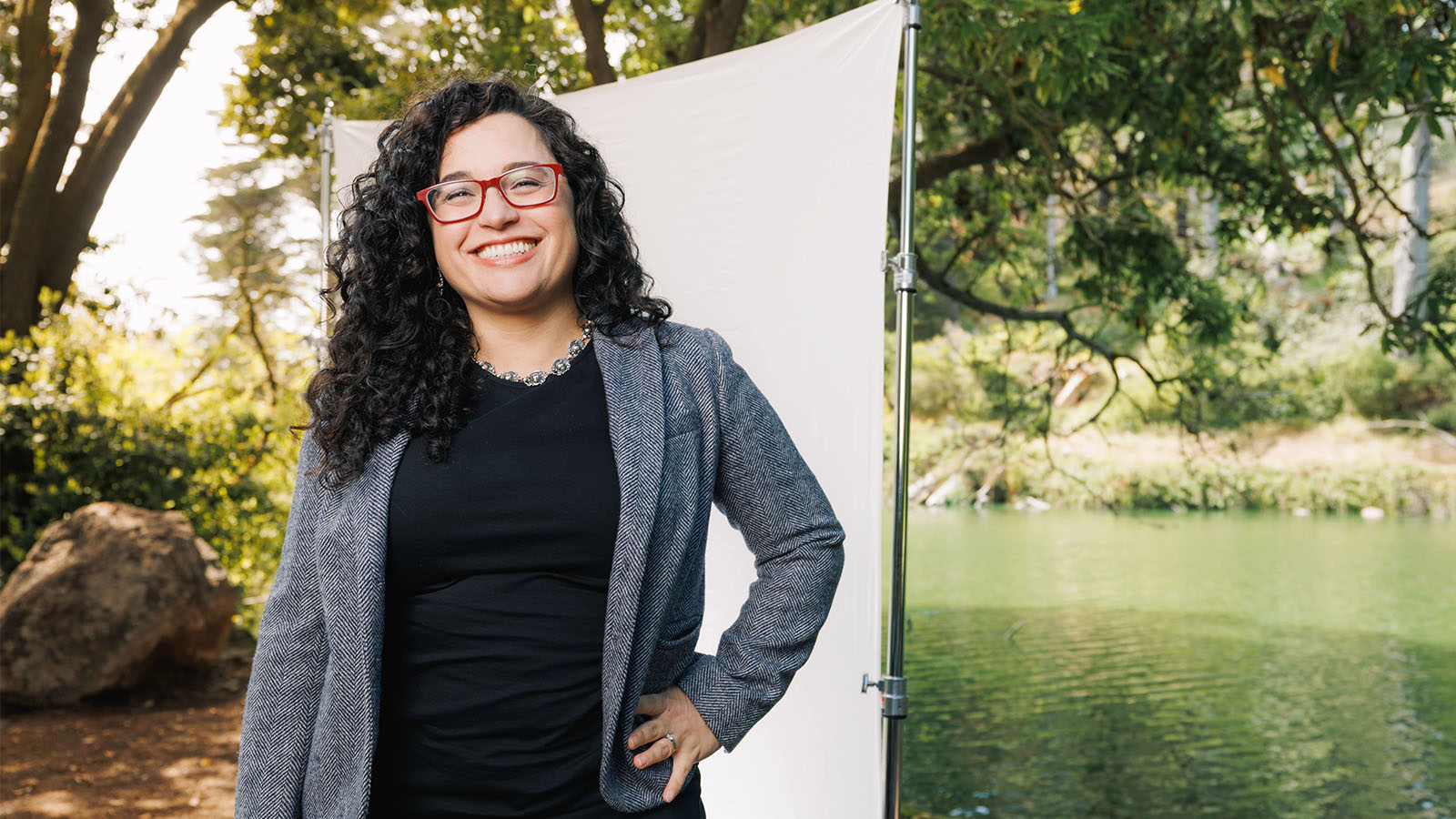
Luisa Elkins ’12 guides her company toward compliance with energy laws and regulations. She is director of compliance and regulatory counsel at SB Energy, a company headquartered in the Bay Area that builds clean-energy projects across the United States.
“The renewable energy space has a lot of rules and regulations,” Elkins says. “They come at every level: local, state, federal. It takes a lot of work to keep up with those laws and to comply with those laws. That’s what I do.”
Elkins is an energy attorney because “I want to take care of our planet, mainly,” she says. “But I’m also concerned about people— about justice and fairness.”
In her last job as senior deputy city attorney overseeing energy matters for San Jose, she helped launch the community choice aggregation program. “The people of San Jose now own their power, literally. They can choose to buy their power from their city instead of from Pacific Gas & Electric,” Elkins says. “Then, during the COVID lockdown, I worked on utility bill forbearance, helping low-income people pay their energy bills.”
Before she moved to the Bay Area in 2007, Elkins was an attorney in Colombia. “I practiced for four years and I was actually in the oil industry in Colombia, but I didn’t want to do that. I knew I wanted to do environmental law.”
Elkins moved to California, learned English, took the LSAT, and applied to USF School of Law. “My husband went to USF for his MBA. He encouraged me to apply to USF School of Law. I also went to the School of Management, so I’m a USF JD/MBA.” Her advice to USF Law alumni who are thinking about environmental law: “Inform yourself. Talk to as many people as you can, just to understand the field. Tap into the alumni network. USF has a very strong alumni network.”
Elkins says this is an exciting time to join the clean energy field. “It’s growing! Just last year, the federal government pledged to invest a trillion dollars in renewable energy in the next decade. “We have an opportunity, but also we have an obligation. I believe that climate change is an existential threat to humanity, and the only way we’re going to tackle it is through collective action.”
The Policymaker
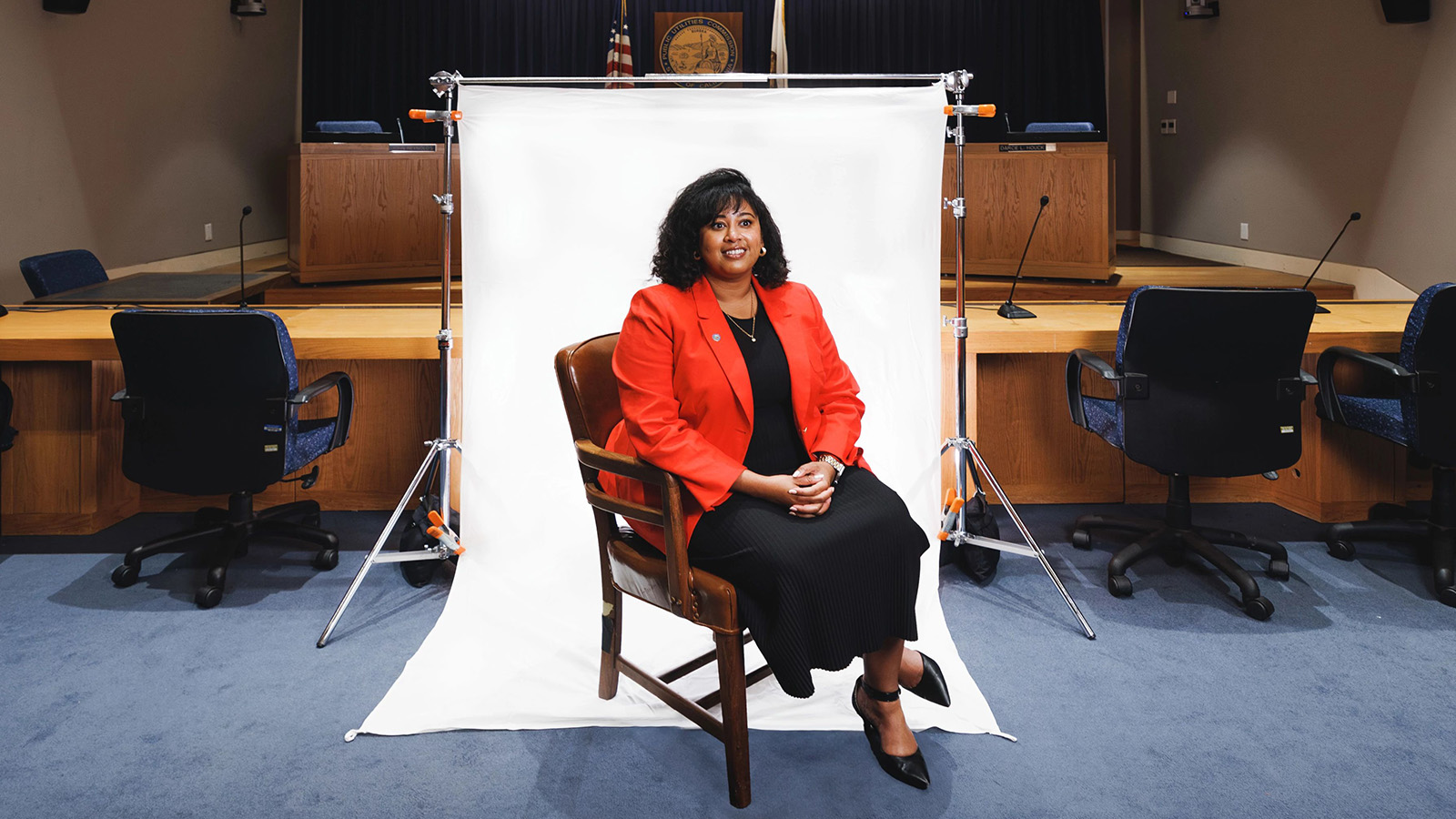
Leuwam Tesfai ’12 keeps the lights on. As deputy executive director for energy and climate policy at the California Public Utilities Commission, she leads a staff of more than 200 policy analysts and engineers “who create staff proposals and provide technical analysis and policy recommendations on energy and climate issues for our commissioners and administrative law judges,” she says.
“I think of our mission as a North Star with four points: reliability or keeping the lights on, affordability for customers, the safety of our energy system, and investing in our energy system to reduce greenhouse gas emissions and meet our climate goals.”
California’s shift to renewable energy can clean the air, boost the economy, and serve justice all at the same time, Tesfai says. “Clean energy infrastructure brings jobs to thousands of workers in California, particularly in vulnerable communities. Disadvantaged and vulnerable communities, many who are people of color, live in areas highly impacted by pollution from energy production and transportation due to historic practices of redlining. Our move to cleaner resources and transportation electrification reduces the pollution burden on these communities while creating new jobs.”
For California to reach its climate goals, “it’s not just about buying more clean electricity. It’s also about inspiring customers to make their homes more energy efficient and to change their vehicles from fossil fuel to electric,” Tesfai says. “In order to succeed, we need to develop energy programs that reach all people in California, and given California is so diverse, we need to have a workforce in this space that is just as diverse as the state of California.”
...we need to have a workforce in this space that is just as diverse as the state of California.”
Tesfai knows the need for diversity. “My parents came here from Ethiopia and Eritrea during the war. English isn’t my first language. My experience is actually very reflective of many people who live in California, where more than 40 percent of the people speak a language other than English at home.”
Like Luisa Elkins, Tesfai says now is a great time to join the renewable energy field. “Recent climate legislation has created new positions in state government. We are working on offshore wind, on geothermal energy, on energy storage and electric vehicles as well as the transmission and distribution infrastructure to make it all work.“
When she joined the state government more than 10 years ago, “there was maybe one job posting a month in clean energy,” Tesfai says. “Right now we have dozens of job postings. Many data and analytical skills are transferable from other sectors to energy and climate work. So I would say, just jump in. Join the California Public Utilities Commission, or join one of our sister agencies like the Energy Commission or the Air Resources Board. It’s a pivotal time to join state government and work toward this critical climate mission.”
